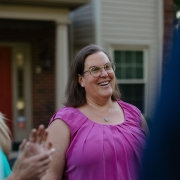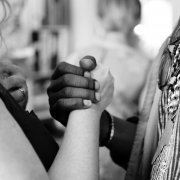Action Speaks Louder than Words: The Power of Intentions
In a world where words are often used to deceive, manipulate, or simply lack sincerity, the proverb “Action speaks louder than words” holds immense significance. This timeless adage emphasizes the importance of actions as a true reflection of one’s intentions and character. We will explore the profound impact of actions and how they can often surpass the power of words.
Actions Manifest True Intentions:
While words can be easily manipulated or insincere, actions have an inherent authenticity that cannot be easily dismissed. Actions are concrete manifestations of one’s beliefs, values, and intentions. They have the power to reveal the true character of an individual, as they require effort, commitment, and consistency. For example, a person who claims to be environmentally conscious but fails to recycle or reduce their carbon footprint demonstrates a lack of genuine commitment to their stated values. In contrast, someone who actively engages in sustainable practices and consistently supports environmental causes through their actions demonstrates a true dedication to their beliefs.
Actions Inspire Trust and Confidence:
Actions have the power to build trust and confidence in relationships, whether personal or professional. When individuals consistently follow through on their promises and commitments, their actions validate their words. This alignment between words and actions fosters trust and reliability, enabling healthy and meaningful connections. Conversely, when words and actions do not align, doubt and skepticism can arise, eroding trust and straining relationships. For instance, a leader who consistently makes grand promises but fails to deliver on them will eventually lose the trust and confidence of their team. In contrast, a leader who takes tangible steps to fulfill their commitments will inspire loyalty and motivate others to follow their lead.
Actions Drive Change and Impact:
While words have the potential to inspire, actions are the driving force behind meaningful change and impact. History is replete with examples of individuals whose actions have shaped the world. Mahatma Gandhi’s nonviolent resistance movements, for instance, demonstrated the power of peaceful protest and inspired a nation to fight for independence. Similarly, the actions of civil rights activists like Martin Luther King Jr. transformed society by challenging racial inequality and discrimination. These influential figures understood that their actions would speak louder than any words they could utter, and their legacies continue to inspire generations.
Actions Overcome Communication Barriers:
In a diverse and globalized world, language barriers and cultural differences often hinder effective communication. Actions can transcend these barriers and convey messages that words alone cannot. A simple act of kindness, a helping hand extended to a stranger, or a charitable donation can communicate compassion, empathy, and goodwill without the need for verbal communication. Such actions create a universal language that unites people from different backgrounds, fostering understanding and connection.
Resetting for success and mindfulness.
One area where this alignment between words and actions is particularly important is in the pursuit of success and mindfulness. In today’s fast-paced world, it is easy to get caught up in the hustle and bustle of everyday life, constantly striving for success without taking the time to pause, reflect, and reset. True success cannot be achieved without a mindful approach that considers not only the end goal but also the journey and the well-being of oneself and others.
One key aspect of resetting for success and mindfulness is the practice of practical mindfulness. This involves being present in the moment, being aware of one’s thoughts and actions, and intentionally slowing down to assess the situation before diving in. Megan acknowledges her own tendency to jump into things without reading instructions, leading to mistakes and inefficiency. By practicing practical mindfulness, she has learned to be more methodical and intentional in her approach, resulting in better outcomes and a gentler attitude towards herself and others.
She also highlights the significance of doing and being. Megan describes herself as a doer, someone who takes action and gets things done. She recognizes the value of being present, of just being in the moment without constantly striving to do more. This balance between doing and being is crucial for success and mindfulness. By taking the time to just be, to pause and reflect, individuals can gain a fresh perspective, see things with beginner’s eyes, and open themselves up to new possibilities and ways of thinking.
The concept of resetting for success and mindfulness is not about following rigid step-by-step guides or adhering to strict rules. Instead, it is about embracing flexibility, curiosity, and the rainbow of options. Megan encourages listeners to think differently, to challenge black and white thinking, and to explore new ways of approaching tasks and routines. By making small changes, such as sitting in a different spot at the table or taking a different route to work, individuals can cultivate a more malleable mindset and create momentum for positive change.
Megan emphasizes the importance of choice and the ability to change one’s mind. Success and mindfulness require individuals to honor themselves, to give themselves the space and time to reset. This may involve pausing, reflecting, and checking in with oneself. It may also involve acknowledging and expressing gratitude for the things one is grateful for in life. By focusing on what is going well and what one is grateful for, individuals can shift their perspective and approach to life, setting themselves up for success and a more mindful existence.
Listen to this Shifting Our Shit (SOS) Podcast episode HERE!
 Keith Williams, LMFT is a lifelong Louisvillian. He received his master’s degree from Louisville Seminary and was classmates with fellow Mindfulness Center therapists Megan Bayles Bartley and Elizabeth McCormack over twenty years ago.
Keith Williams, LMFT is a lifelong Louisvillian. He received his master’s degree from Louisville Seminary and was classmates with fellow Mindfulness Center therapists Megan Bayles Bartley and Elizabeth McCormack over twenty years ago.










 . She wants you to know that hope is always available to you, however dismal life may seem. My clients describe me as authentic, down-to-earth, non-judgmental, and real.
. She wants you to know that hope is always available to you, however dismal life may seem. My clients describe me as authentic, down-to-earth, non-judgmental, and real.

